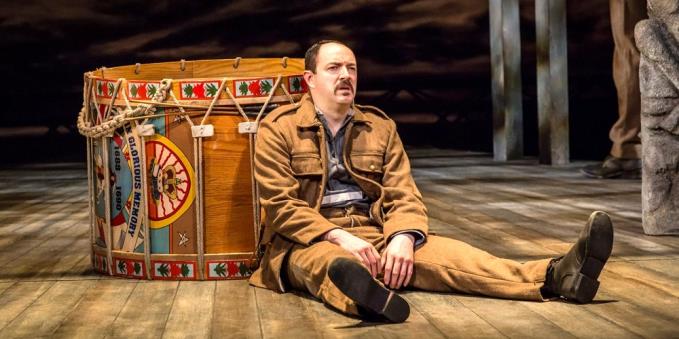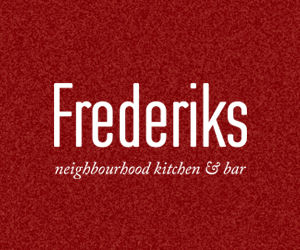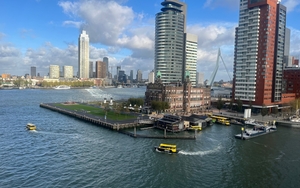THIS year marks the centenary of the Battle of the Somme which lasted some 140 days of horrific trench warfare. It was the bloodiest in human history fought with unimaginable bravery, sacrifice and cruelty in the First World War.
Historians describe it as the arrival of industrial warfare on a massive scale and ushered in an era of attritional combat costing more than a million lives. It was in this battle that, on the 1st July 1916, the 36th (Ulster) Division proved both its honour and valour. Co-incidentally, the Battle of the Boyne took place on the same date in 1690.
Fine soliloquies are steeped in an atavistic Protestant creed and hammered home like the blood-red rivets of the shipbuilder’s yard
This production, written by Frank McGuinness, deals with this through the interactions and life experiences of Ulster men thrown together by pure chance in a tight, seven-man field unit. The first act is devoted to the tortured reliving of the consequences of the battle through an old Pyper (Sean McGinley) who suffers from survivor guilt and can’t erase the memories of his fallen comrades.
It’s an often mesmerising performance: fine soliloquies are steeped in an atavistic Protestant creed and hammered home like the blood-red rivets of the shipbuilder’s yard.
As these are delivered, the ghosts of his past emerge from the wings, Craig (Ryan Donaldson), Roulston (Marcus Lamb) and Crawford (Jonny Holden), all kitted up as though they were ready for the dawn whistle to climb up into the living hell of no-mans-land.
Later, his other comrades emerge: Moore (Chris McCurry), Millen (Iaria McGowan), McIlwaine (Paul Kennedy) and Anderson (Andy Kellegher). Their silent observation of the old Pyper’s descent into a mire of self-loathing echoes the futility of their doomed mission, albeit in homage to their ancestors. The deliberate references to the slicing of the hand, even while peeling an apple, are intentional and hark back to the legend of the Red Hand of Ulster.
As the play progresses, McGuiness crafts a masterful depiction of the eventual, but often tortuous male bonding within the band of brothers-in-arms. During some time on leave from the front, the young Pyper’s sometime weird pronouncements and teasing masks a vicious streak of self-hate which is sublimated through a homoerotic pairing up with Craig on Boa Island.
 Johan Persson ....jpg)
Roulston’s admission of a crisis of his Protestant faith as a failed preacher is put into sharp focus by Crawford’s surgical questioning on the existence of God – Protestant or otherwise. This itself is a metaphor for the ultimate futility and insanity of the war embodied through the poetry of the war poets Owen and Sassoon.
Anderson and Mcilwaine’s failure to drum up enough effort to recreate a 12th July march ends with a drunken animal cry after beating the hell out of a lambergh with bare fists till they bleed. Millen and Moore face the dire consequences of falling into the abyss through an attempt to cross a rope-bridge as a test of their loyalty to each other. These pairings sow the seeds of the ultimate combination of them all as they face the pink sky of the morning of the battle. They pray together, singing a battle-hymn whilst they all share arms to create a tight circle and prepare for the carnage to follow. In the final, poignant moments, the men share Orange Lodge sashes as an act of common brotherhood.

What follows is truly awesome - the commencement of the battle itself - and the stage dynamics of recreating this is terrifying, so be prepared for very loud explosions and light flashes.
Apart from being a commemorative production, this play deals with the basic instincts of self-survival in the most grotesque circumstances imaginable. It is not hard to imagine McGuinness writing this with a fountain-pen filled with blood instead of ink.
It doesn’t in any way glorify the war, nor the circumstances which led to it. Rather, it reveals the shocking truth of how men must cope with both the gruesome task of savagery whilst facing the prospect of never seeing another sunrise. It‘s more of an indictment than a testament of the human condition and, in doing so, implores that it should never happen again.
9/10
Wednesday 8th June – Saturday 25th June
 Powered by Wakelet
Powered by Wakelet















